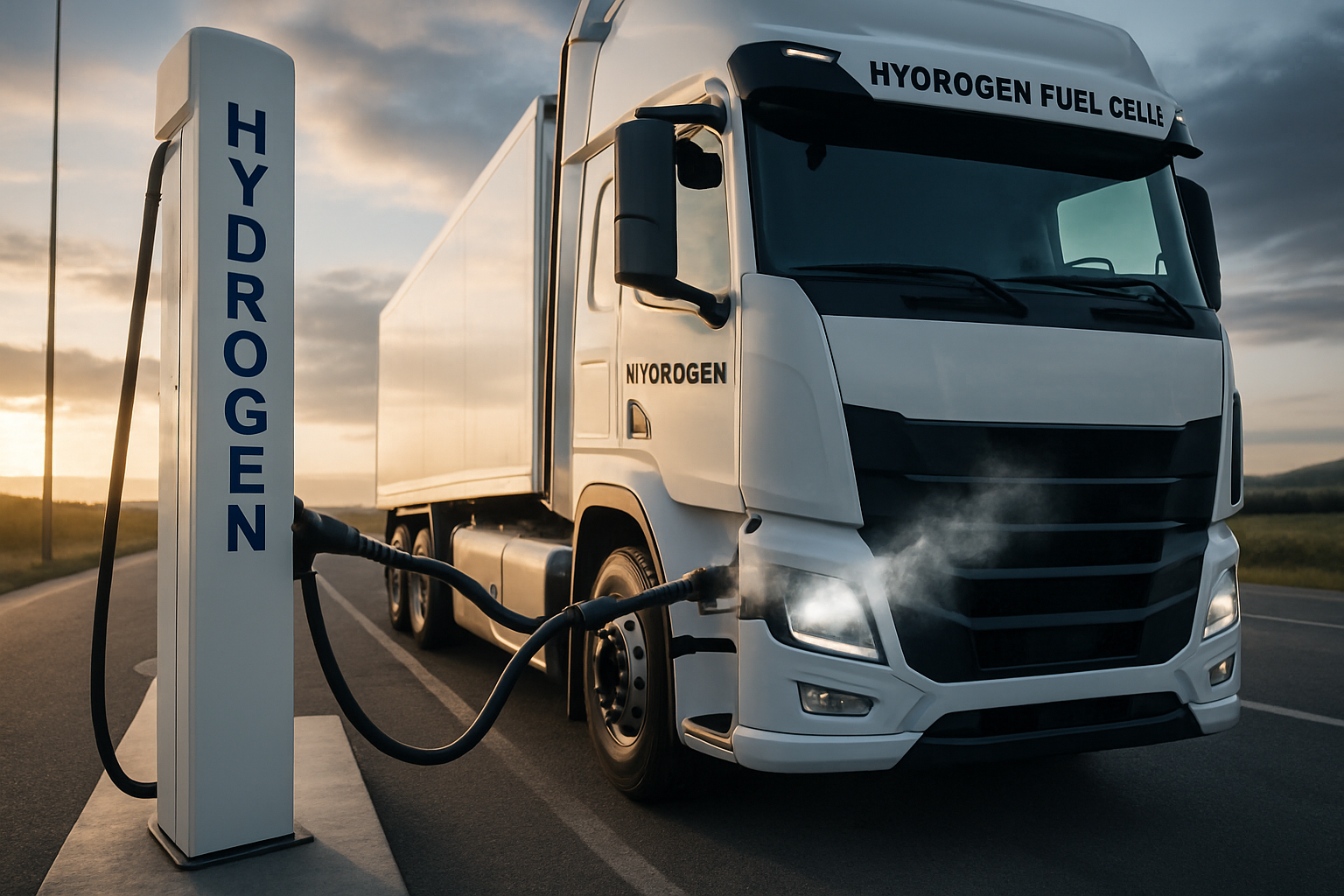Hydrogen Fuel Cells: The Quiet Revolution in Heavy-Duty Trucking
Picture a world where long-haul trucks glide silently down highways, emitting nothing but water vapor. This isn't a far-off dream, but a reality taking shape today. Hydrogen fuel cell technology is quietly transforming the heavy-duty trucking industry, offering a compelling alternative to traditional diesel engines. As we delve into this groundbreaking shift, we'll explore how hydrogen is poised to redefine the future of freight transport, addressing both environmental concerns and operational efficiency.

The environmental impact is equally significant. Hydrogen fuel cell trucks produce zero tailpipe emissions, with water vapor being their only byproduct. This makes them an attractive option for companies looking to reduce their carbon footprint and comply with increasingly stringent emissions regulations. The technology also offers a longer range compared to battery-electric alternatives, making it particularly suitable for long-distance freight transport.
Overcoming Infrastructure Hurdles
One of the primary challenges facing widespread adoption of hydrogen fuel cell trucks is the lack of refueling infrastructure. However, this is rapidly changing. Several countries and private companies are investing heavily in hydrogen refueling stations along major trucking routes. For instance, in Europe, the H2Haul project aims to deploy hydrogen refueling stations across key freight corridors, supporting the operation of long-haul fuel cell trucks.
In the United States, initiatives like the California Fuel Cell Partnership are working to expand the hydrogen refueling network. These efforts are crucial, as a robust infrastructure is essential for the viability of hydrogen-powered trucking. As more refueling stations come online, the practicality of hydrogen fuel cell trucks for long-distance transport becomes increasingly apparent.
Economic Viability and Total Cost of Ownership
While the initial cost of hydrogen fuel cell trucks is currently higher than their diesel counterparts, the economics are shifting in favor of this clean technology. As production scales up and technology advances, the cost of fuel cells is expected to decrease significantly. Additionally, the simplicity of fuel cell systems, with fewer moving parts compared to internal combustion engines, promises lower maintenance costs over the vehicle’s lifetime.
When considering the total cost of ownership, hydrogen fuel cell trucks are becoming increasingly competitive. Factors such as fuel efficiency, maintenance requirements, and potential government incentives all contribute to a favorable economic outlook. As more fleets adopt this technology, economies of scale will further drive down costs, making hydrogen an even more attractive option for trucking companies.
Real-World Performance and Pilot Programs
Numerous pilot programs around the world are demonstrating the real-world potential of hydrogen fuel cell trucks. In Switzerland, a fleet of hydrogen-powered trucks has been successfully operating since 2020, proving the technology’s viability in challenging Alpine conditions. These trucks have shown impressive performance metrics, matching or exceeding their diesel counterparts in power and range.
In the United States, several major trucking companies are partnering with manufacturers to test hydrogen fuel cell trucks in various operational scenarios. These trials are providing valuable data on performance, reliability, and operational costs. The results so far have been promising, with drivers reporting smooth operation and companies noting significant reductions in emissions without compromising on payload capacity or range.
The Road Ahead: Challenges and Opportunities
While the future looks bright for hydrogen fuel cell trucks, several challenges remain. The production of green hydrogen – hydrogen produced using renewable energy – needs to be scaled up to fully realize the environmental benefits of this technology. Additionally, further advancements in fuel cell durability and efficiency are needed to enhance the long-term viability of these vehicles.
However, the opportunities are immense. As governments worldwide implement stricter emissions regulations and set ambitious climate goals, hydrogen fuel cell technology offers a practical solution for decarbonizing the heavy-duty transport sector. The technology also opens up new avenues for energy independence, as hydrogen can be produced locally using various methods.
The trucking industry stands at the cusp of a major transformation. Hydrogen fuel cell technology is not just an alternative; it’s a pathway to a cleaner, more efficient future in long-haul transportation. As infrastructure expands and technology matures, we can expect to see more hydrogen-powered trucks on our highways, silently ushering in a new era of sustainable freight transport. This quiet revolution in heavy-duty trucking is gaining momentum, promising to reshape the landscape of long-distance transportation in the years to come.





